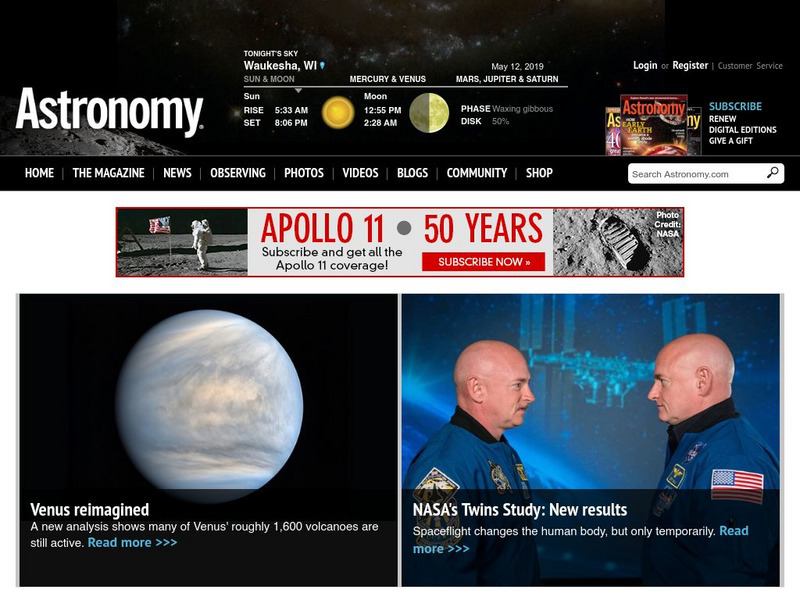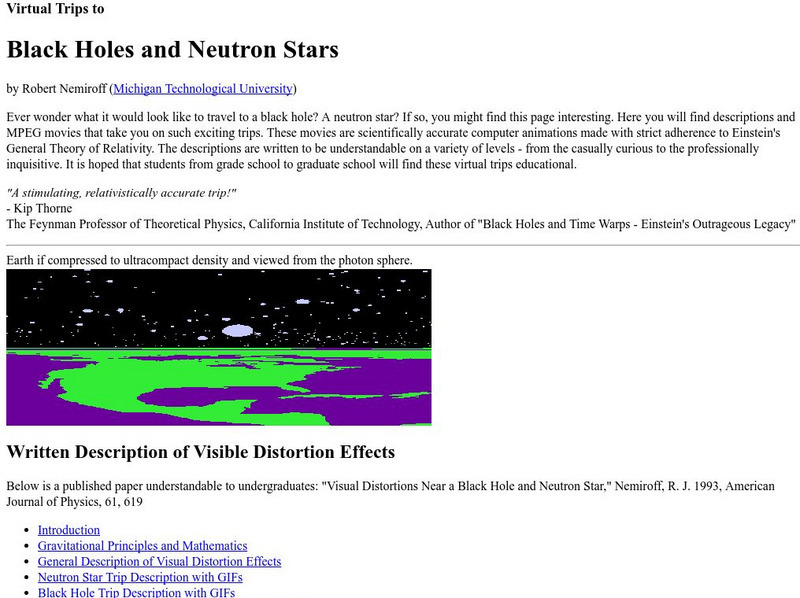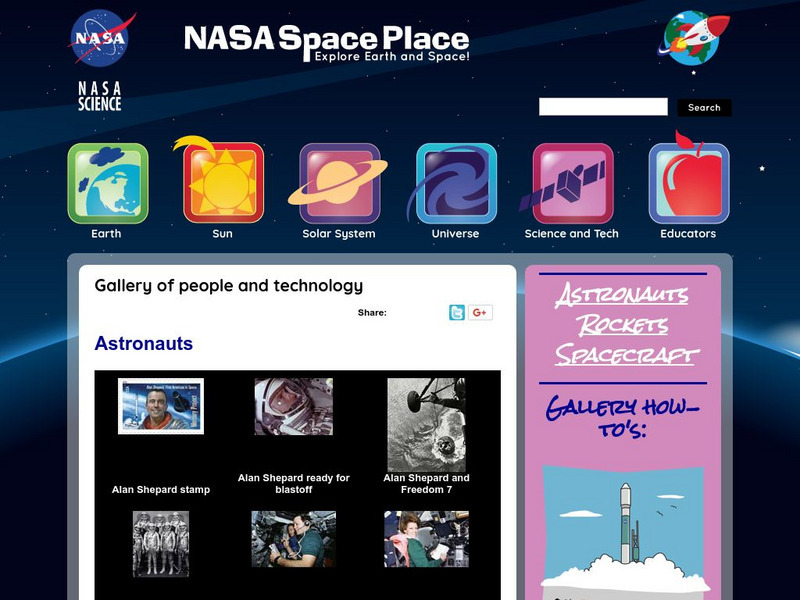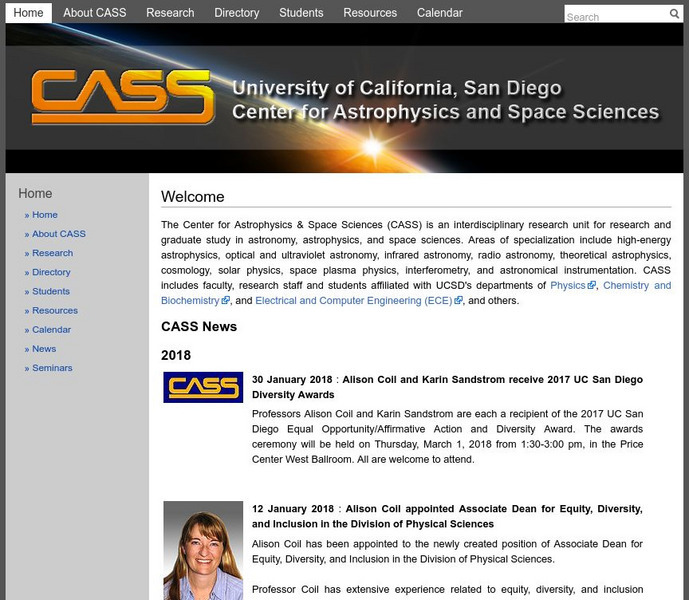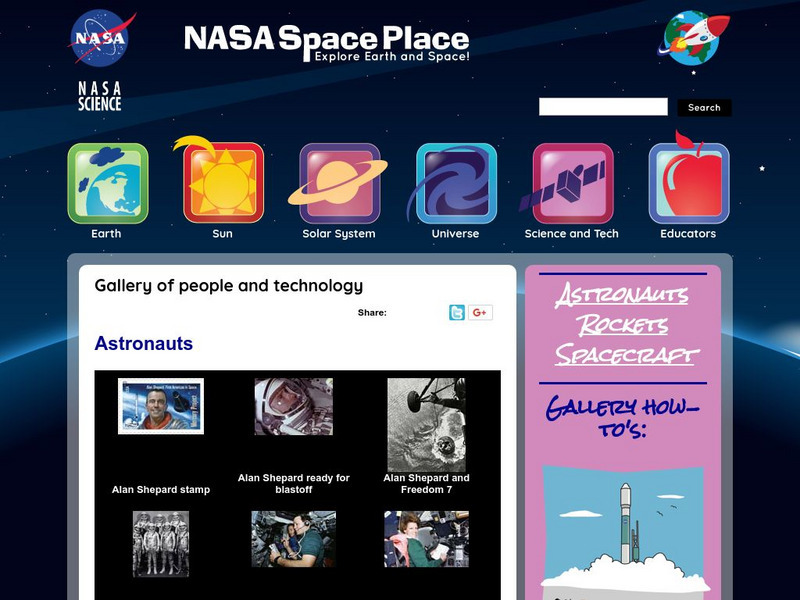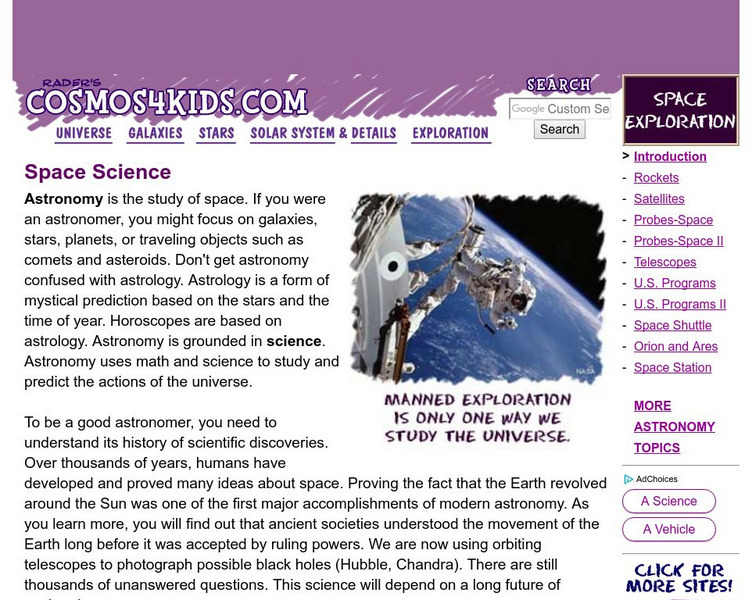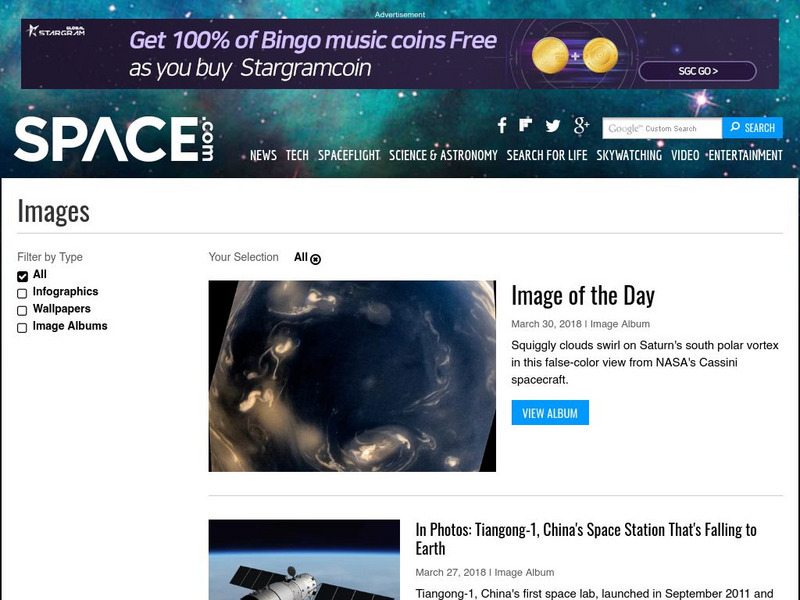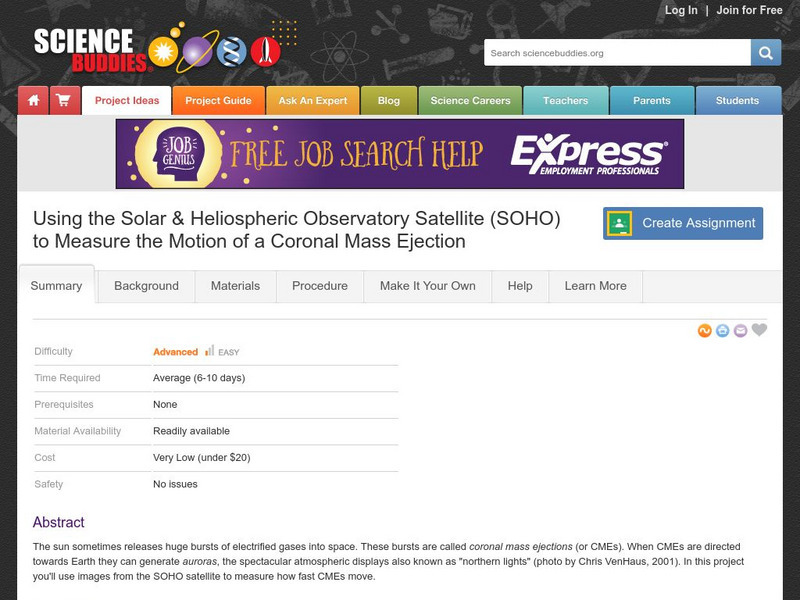Space Telescope Science Institute
Amazing Space: Hubble Deep Field Academy
At this site, learners can become a Steller Statistician, Cosmic Classifier, Galactic Guide or a Universal Graduate by attending the Hubble Deep Field Academy--and entering information in their Hubble Academy Log (HAL), which is assessed...
Space Telescope Science Institute
Amazing Space: No Escape: The Truth About Black Holes
This site is for teachers or anyone interested in detailed information on black holes. Lesson plans are included as well as a grab bag of web images. Students have a chance to write and submit a paper on black holes and to explore the...
Other
Astronomy.com
Astronomy.com offers daily astronomy news, a photo gallery, hobby news, The Sky Online, telescope information, NASA mission guides and much more.
NASA
Nasa: Astronomy Picture of the Day: Virtual Trips to Black Holes. Neutron Stars
Learn more about black holes and neutron stars. View the MPEG video of a virtual trip into a black hole.
Wolfram Research
Wolfram Science World: Science World of Astronomy: Snc Meteorites
View a chart displaying various kinds of meteorites collected on earth and read a technical article describing the manner in which they are studied. Provides a link to more information about the planet Mars and the role it plays in the...
American Museum of Natural History
American Museum of Natural History: O Logy: Stuff to Do: Space Travel Guide
What makes science fiction so exciting? Read some examples of the genre and then create your own science fiction story about space travel. Use the supplied "travel guide" to generate ideas and structure your plot.
Other
Universe Today Space News From Around the Internet
Universe Today is an online news source covering the latest in astronomy, space exploration, and more.
NASA
Nasa: Astronomy Picture of the Day:the Clouds of Neptune
Changes in the atmosphere of Neptune as recorded by the Hubble Space Telescope.
NASA
Nasa Space Science Data Archive: Asteroid 253 Mathilde
This site contains facts about the asteroid 253 Mathilde from the National Space Science Data Center at NASA.
NASA
Nasa: Astronomy Picture of the Day: Gamma Ray Quasar
A photograph and description of quasar 3C279 viewed in gamma-rays. It was unexpectedly discovered and was one of the brightest objects in the gamma-ray sky until it suddenly faded.
NASA
Nasa: The Space Place: Gallery of People and Technology
A whole page of astronaut pictures which you can download and print. Many of the images are labeled with the names of the astronauts portrayed.
University of California
University of California:center for Astrophysics & Space
Supernovae, neutron stars, and pulsars are topics on this page. Extensive section on pulsars that presents information on their discovery, characteristics, evolution, and location.
NASA
Nasa: The Space Place: Gallery of People and Technology
NASA has provided a whole page full of images for you to download and print. These pictures are labeled and can be enlarged.
Other
Astromador: Astronomia Para Amadores
This resources focuses exclusively on astronomy. It's packed with historical facts about space exploration, famous people who pioneered the study of stars and planets. It features chronological list of space exploration, current news,...
Other
Astronomy: One Degree Imager Debuts at Wiyn Telescope
This article explains the debute of a One Degree Imager at WIYN Telescope at Kitt Peak National Observatory. It discusses what the imager is capable of doing.
Other
Canal Kids: Ciencias (Science for Portuguese Speakers)
Colorful, engagingly written information about astronomy and biology for Portuguese-speaking English language learners. Both subjects are broken down into a broad array of related subtopics. The biology section is particularly helpful...
NASA
Nasa: Kepler: A Search for Habitable Planets: Transit Tracks
Classroom lesson for teaching astronomy uses PowerPoint presentations and illustrations of Kepler's light curves used to discover planets.
Cosmos 4 kids
Cosmos4 kids.com: Exploration
Space can be explored in many different ways. Read about space exploration and click on the topics on the right margin to find out how man finds out about his universe.
NASA
Nasa: Electromagnetic Spectrum: Radio Waves
Radio waves have the longest wavelengths in the electromagnetic spectrum. This NASA article discusses AM, FM, TV, cell phone, as well as radio astronomy, which all use this technology.
Space.com
Space.com: Space Views
Zoom in on everything from distant galaxies to the Earth's most interesting places! See the Pyramids, London, Hoover Dam, and more. Check for bald spots on the heads of the presidents at Mt. Rushmore. See how much the polar ice caps on...
TED Talks
Ted: Ted Ed: How Do We Study the Stars?
Yuan-Sen Ting takes us into deep space to show how astronomers study the stars beyond our reach. [4:46]
Views of the Solar System
Views of the Solar System: The Solar System
Explore the solar system through this site that includes vivid multimedia resources. Learn the latest scientific discoveries, the history of space exploration, and much more. Site includes videos, graphics, articles, and photographs.
Space Telescope Science Institute
Hubble Site: Hubble Monitors Weather
This site is from Hubblesite which is provided by the National Aeronautics and Space Administration. "What's the weather for Mars and Venus? The Hubble telescope has given astronomers a peak." Site provides images, video as well as...
Science Buddies
Science Buddies: Observatory Satellite Measures Motion of Coronal Mass Ejection
The sun sometimes releases huge bursts of electrified gases into space. These bursts are called coronal mass ejections (or CMEs). When CMEs are directed towards Earth they can generate auroras, the spectacular atmospheric displays also...
Other popular searches
- Astronomy and Space Science
- Astronomy and Space
- Astronomy/space
- Preschool Astronomy/space
- "Astronomy and Space Science
- Astronomy and Space Lesson




